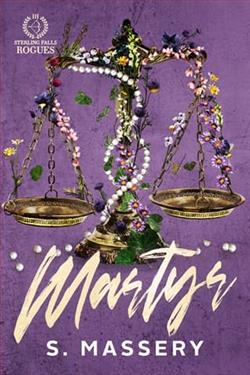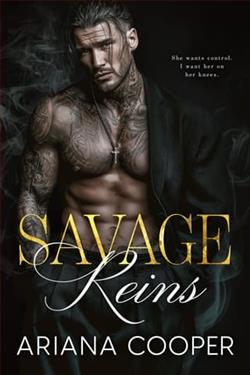Page 122 of How to Walk Away
But I never said any of that, and later, I was glad. As the expression on his face finally came into focus, I stopped. If any part of me had been hoping for a yes, that was the moment when it disappeared.
He was holding his breath. He let it out, and stood, turned away, and shoved a hand into his hair, all at once.
“I didn’t ‘kind of lose interest’ in my business,” he said.
A huge confession of love from me, and that’s his talking point?
He went on. “The business was great. It was working out—growing, even. It was one of those impossible moments in life when everybody got to win. I was happy, my employees were happy, our clients were happy. Kayla was happy. We had moved in together. We were talking about getting married.” He took a shaky breath. “Then, one night—it was actually the night the Oscars were on—Kayla stopped by the store on her way home to pick up a box of microwave popcorn, because she had this rule that you couldn’t watch the Oscars without popcorn.” Ian paused. “And a boy—a teenage boy—walked into the grocery store with an assault rifle and opened fire. For no reason. Nobody ever figured out why—why that store, why that day, why that moment. He shot a security guard, two checkers, and two people standing in line. And the last person he shot, before he shot himself, was Kayla.”
I knew the rest without his even saying it.
I remembered that shooting. It had dominated the local news for days. I knew that nobody in that store had survived.
But even if I hadn’t remembered, I’d have known from the look on lan’s face—so indelible and so undeniable. The woman he loved—wanted to marry—had gone to the store for popcorn, and she had never come home.
There are facial expressions you can fake. You can fake a smile, for instance, or a frown. You can even fake tears. But certain expressions are so true and so directly connected to the heart that they are beyond description. That’s what I saw in Ian then. The most desperate, unspeakable, agonizing, indescribable despair.
I held still and quiet. What could I say? How on earth could I respond? It was beyond anything I had words for. At last, grasping for something—some acknowledgment of what he was telling me—I whispered, “I am so sorry.”
He nodded, staring at the floor like he was seeing something else.
After a while, quiet as I could, I said, “I remember it. Something like three years ago, right?”
He didn’t look up, but he said, “Three years, almost exactly.”
I suddenly understood lots of things. “That’s why you lost interest in the business,” I said.
He nodded, lost in the memory. “She died at the scene. She never had a chance. He got her twice—one bullet through her right breast and lung, and one through her ear and out the back of her head. Only one person survived. The store was closed during the investigation, but then they reopened. Mopped away all the blood and opened the doors within two weeks. I’ve never gone back. I can’t even drive down that street. It’s so strange to me that people shop there now. They don’t even know. They buy their Doritos and their beer and stand in line on the very spot where she took her last breath. She died alone on a cold industrial floor. It all ended right there. Everything she’d ever worked toward, or hoped for, or loved.”
I watched his chest rise and fall. At last, I understood his silences. How words must truly fail him in the face of it all. My mind skipped backward to all the times he stood at the gym, holding so still, seeming like it took every ounce of his will to tolerate the world and everyone in it. I guess it really had.
I didn’t push against the quiet, or try to fix it, or try to fill it with noise. I just let it surround us, and I stayed right there.
After a while, he looked up, seeming to remember I was there.
“I want to thank you,” he said then, meeting my eyes. “You are the only good thing that’s happened to me since that day.”
Context changes everything. My green card idea seemed so foolish now, knowing everything. I had the idea to grab on to that foolishness and make a little joke. “My offer of a sham wedding is still open,” I said.
I’d hoped for a smile, and I got one, just for a second. “I can’t marry you for a green card.”
I watched his profile at the window, and I felt the most acute longing. Knowing what he’d been through made my problems seem small in comparison. It forced me to step back and see my own situation in a broader context. It forced me to notice that I was, if nothing else, still alive. Witnessing even a glimpse of what he’d lost made me feel both embarrassed by my declaration of love for him—and a thousand times more committed to it.
He must have sensed what I was feeling. “And you’re not actually in love with me, by the way.”
With that shift in topic, the light in the room seemed to change—just barely—as if somewhere not too far away the sun had come out from the clouds.
“Um,” I said, “I think I would know.”
“We talked about this already,” he said. “It’s not real.”
I tilted my head. “Feels pretty real.”
“Listen,” he said, “you know how kidnapping victims can fall in love with their captors? That’s what this is.”
“You’re saying I have Stockholm syndrome?”
“I’m saying you have a version of something like it.”















